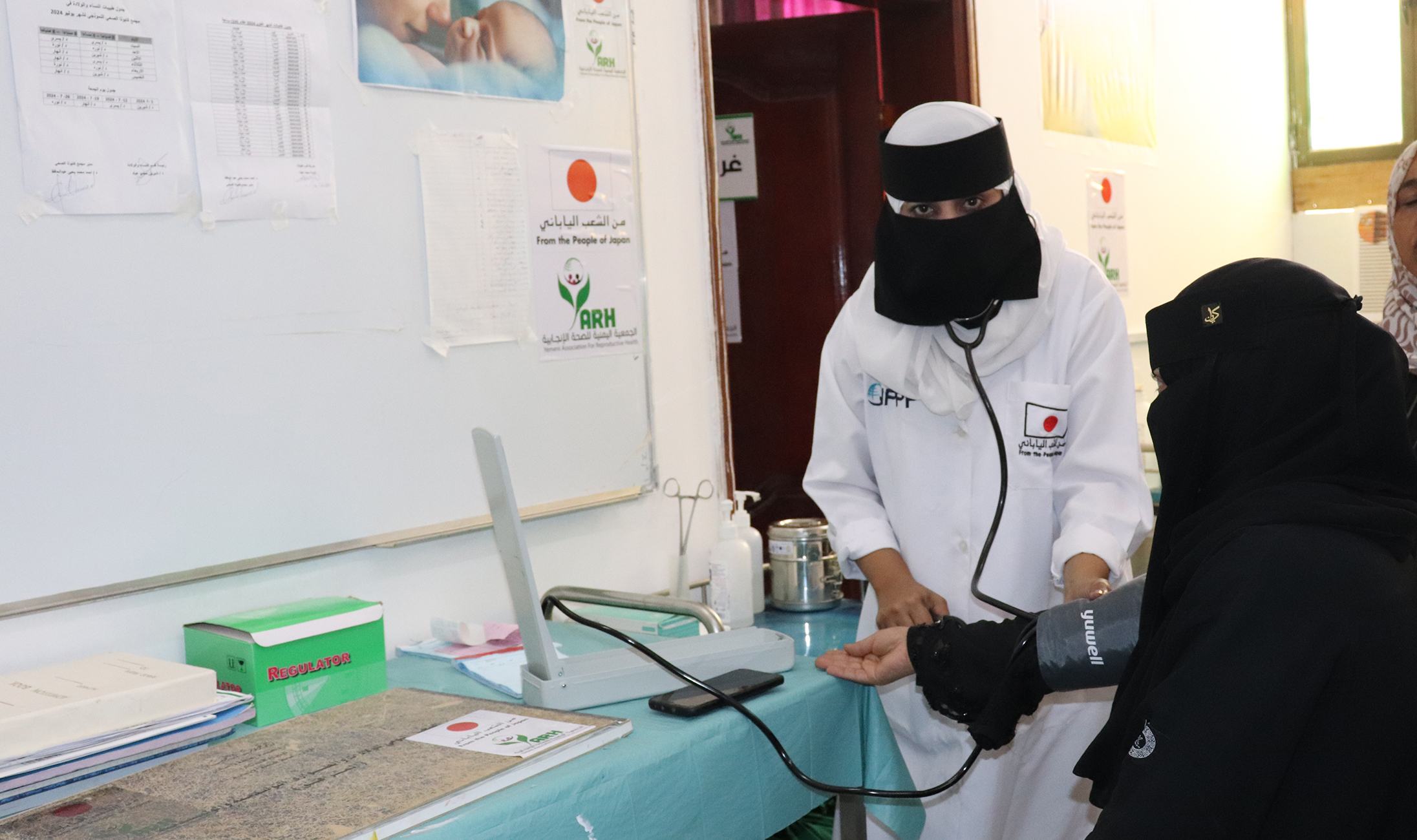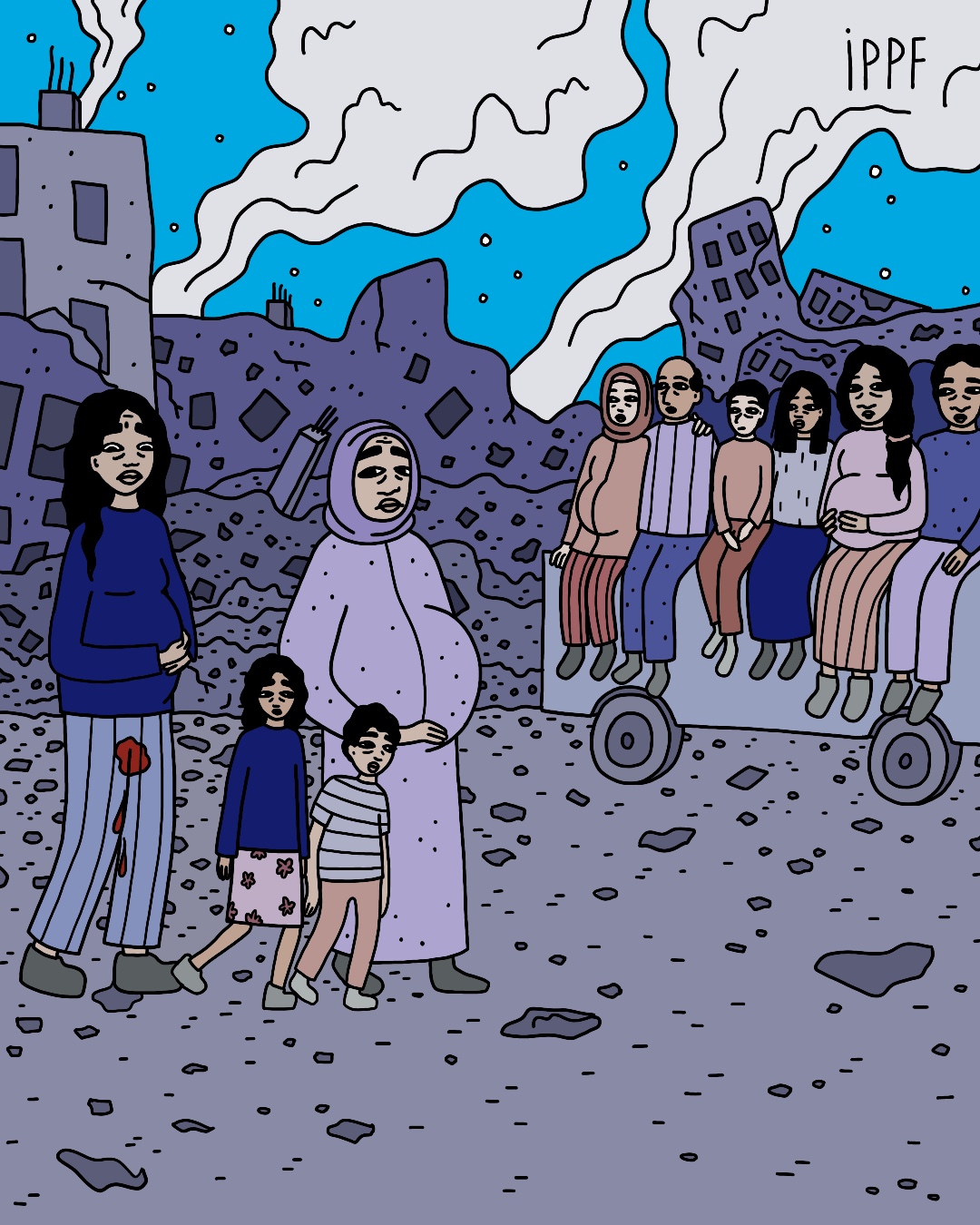Latest press releases
A selection of stories from across the Federation

Netherlands
Rutgers triumphs in landmark court case against lies, online hate and disinformation
Rutgers, the Netherlands’ leading sexual and reproductive health expert and IPPF’s Member Association, has today secured a landmark legal win against an ultra-conservative group.
For media enquiries


| 08 April 2025
Japan Supports IPPF Yemen Project with $750,000 to Provide Critical Maternal and Reproductive Health Services
April 8th, 2025 - A new project titled "Providing Critical Sexual, Reproductive and Maternal Health Care to Internally Displaced People and Local Communities in Yemen" has been launched. Funded by the Government of Japan and implemented by IPPF Member Association in Yemen, the Yemeni Association for Reproductive Health (YARH), the project aims to enhance and sustain high-quality sexual and reproductive health (SRH) services and awareness for Yemen’s crisis-affected populations in Aden and Amran. Following years of conflict and instability, Yemen's humanitarian needs remain severe, with an estimated 19.5 million people in need of assistance (OCHA). Internally displaced persons (IDPs), returnees, and host communities are particularly affected, struggling to access essential maternal, newborn, and reproductive healthcare. The new funding will allow for expanded services, ensuring lifesaving care reaches more communities, particularly women, youth, and newborns. It aims to reduce maternal and newborn mortality and morbidity while improving care for survivors of gender-based violence. Additionally, community outreach and capacity-building programmes will empower individuals with the knowledge to make informed decisions about their sexual and reproductive health and rights. Key activities include: Renovating and upgrading two health facilities (one in each project governorate) to provide high-quality SRH, maternal and child health, and gender-based violence (GBV) services, as well as nutrition and cholera treatment. Ensuring IDPs, host communities, and returnees receive critical reproductive healthcare, including antenatal and postnatal care, family planning, and emergency obstetric and newborn care. Training healthcare professionals from YARH and other local health facilities in the Minimum Initial Service Package (MISP), Clinical Management of Rape, and sexual reproductive health in emergencies (SRHiE). Conducting 480 awareness-raising sessions led by trained peer educators to educate nearly 5,000 individuals on SRH, HIV, cholera, nutrition, and gender-based violence. Training 40 community and youth peer educators to strengthen SRH education and advocacy efforts in local communities. H.E. Mr. NAKASHIMA Yoichi, Ambassador of Japan to Yemen stated, “Ensuring access to quality maternal and reproductive health services for crisis-affected communities underscores our commitment to supporting vulnerable populations in Yemen. We look forward to beginning this new project”. Dr. Ali Norman, Executive Director of YARH, emphasised, “By strengthening health infrastructure, training healthcare workers, and engaging communities, we are improving the health and well-being of mothers, newborns, and families across the region. We are grateful for the support from the Government of Japan.” Dr. Fadoua Bakhadda, Regional Director of the IPPF Arab World Regional Office, added, “This support ensures that we can keep delivering essential SRH services to communities in greatest need. This funding will be transformative for women, children, and families in Yemen, particularly in underserved areas.” Over the course of this project, it is anticipated that: Over 10,000 women, newborns, and young people will receive quality SRH and maternal health services. 1,000 women will be reached with gender-based violence services. Over 4,000 internally displaced persons and host community members will receive information on sexual and reproductive health and rights, including GBV and other health services. Peer educators will be trained in communication skills, basic health, hygiene, and SRHR education. Healthcare service providers will receive specialised training to enhance the quality of SRH services in emergencies. About YARH Established in June 2009 as a not-for-profit voluntary non-governmental organisation, the Yemeni Association for Reproductive Health (YARH) is registered with the Ministry of Social Affairs and became an IPPF Member Association in 2010. Through two clinics and one youth-friendly service centre, YARH provides quality SRH services to people in Yemen. The organisation plays a key role in building strategic partnerships with other entities focused on young people’s programmes and actively involves youth in identifying, implementing, monitoring, and evaluating projects. YARH is a strong advocate for sexual and reproductive health and rights (SRHR). Key partnerships include the Ministry of Public Health (Department of Reproductive Health, National AIDS Programme, General Directorate for Women's and Child's Health), the Ministry of Youth and Sports (Scouts, Guides, and Sport Clubs), Sana’a University, the Population Research and Studies Centre, local NGOs active in reproductive health, private universities, and organisations focused on human rights, gender equality, and women's rights, including the Women's National Committee and the National Information Centre. About IPPF Arab World Office The International Planned Parenthood Federation (IPPF) Arab World Office is a leading healthcare provider and advocate for SRHR in North Africa and the Middle East. Established in 1971, it is one of IPPF’s six regional offices, supporting a network of member associations across the region. IPPF AWR is committed to delivering essential health services and championing reproductive rights, particularly in crisis and humanitarian settings.

| 09 July 2024
Press Release: Gaza nine months on, pregnant women carry the burden of conflict
Jerusalem, 9 July 2024: Nine months on since the start of the Israeli aggression in Gaza, maternal healthcare is almost decimated. Pregnant, postpartum, and breastfeeding women in Gaza are facing serious health consequences. Miscarriages have risen at least 300% since October last year. One of our own health workers from the Palestinian Family Planning and Protection Association (PFPPA) recently lost her pregnancy due to the stress of the attacks. “I am a healthcare worker with PFPPA, and I have been forced to flee not once, not twice, but six times since the start of the violence, with my husband and three small children. Our home was destroyed by bombing. Whilst I was fleeing from one location to another, I started to unexpectedly bleed. I was able to find a doctor only after reaching Rafah, who confirmed I was miscarrying. I didn’t even realise I was pregnant,” Wafa, our healthcare worker in Gaza, told us. With the starvation being faced by the people in Gaza in addition to the lack of drinking water, our service providers are reporting on daily basis of pregnant women suffering from anaemia, malnutrition and in desperate need of prenatal vitamins and supplements. Our service providers in Gaza are also witnessing many women who are either having premature deliveries or miscarriages. Women of newborns are unable to breastfeed their babies due their own malnutrition and anxiety, while at the same time most families cannot afford milk formula as prices are becoming extremely high - and that is if they can find it in the market. When medical facilities are available, many women are unwilling to leave their shelters to obtain pre- and post-natal care, as they worry if they are separated from their families there will be military attacks and bombings and fear for their and their loved one's fate if they do so. Ammal Awadallah, Executive Director of PFPPA, said: “Nine months on, and a woman who conceived at the start of these hostilities will now be giving birth. But where, how, and what life is that baby entering? This will be a lost generation in Gaza, a generation born into genocide. We’re doing the best we can to offer support to women in Gaza, but the conditions to get aid into Gaza, let alone warehouse supplies, make our jobs extremely difficult. PFPPA has always been committed to women’s health and that doesn’t stop, now or ever.” Over 37,900 people have now lost their lives in Gaza. Women and girls that survive are facing a myriad of challenges; deprived of sexual and reproductive health services, sanitary and hygiene products. We believe every single person and organisation needs to mobilise to end this, by calling on their governments to demand unhindered humanitarian aid access, to demand a permanent ceasefire, and divest from any organisations aiding and abetting Israel’s military campaign against Palestine. We are working in close collaboration with colleagues in Palestine on how best to serve those caught up in the violence, to ensure health workers are safe and able to provide sexual and reproductive health care without threat to life. For more information and to speak to our Executive Director in Palestine, please email [email protected] About the Palestinian Family Planning and Protection Association Established in Jerusalem in 1964, the Palestinian Family Planning and Protection Association (PFPPA) is locally registered as an independent, non-profit and non-governmental association with headquarters in Jerusalem. PFPPA has service delivery points located in the West Bank Areas of Ramallah, Bethlehem, Hebron and Halhoul, in addition to one in the Gaza Strip, which has yet to be relocated after it was destroyed following an Israeli airstrike on 8 October. Furthermore, and in cooperation with local partners, PFPPA is also responsible for three safe spaces to provide Gender Based Violence (GBV) related services in the Jerusalem area. About the International Planned Parenthood Federation IPPF is a global healthcare provider and a leading advocate of sexual and reproductive health and rights (SRHR) for all. Led by a courageous and determined group of women, IPPF was founded in 1952 at the Third International Planned Parenthood Conference. Today, we are a movement of 150 Member Associations and Collaborative Partners with a presence in over 146 countries. Our work is wide-ranging, including comprehensive sex education, provision of contraceptive, safe abortion, and maternal care and responding to humanitarian crises. We pride ourselves on being local through our members and global through our network. At the heart of our mission is the provision of – and advocacy in support of – integrated healthcare to anyone who needs it regardless of race, gender, sex, income, and crucially no matter how remote.
















